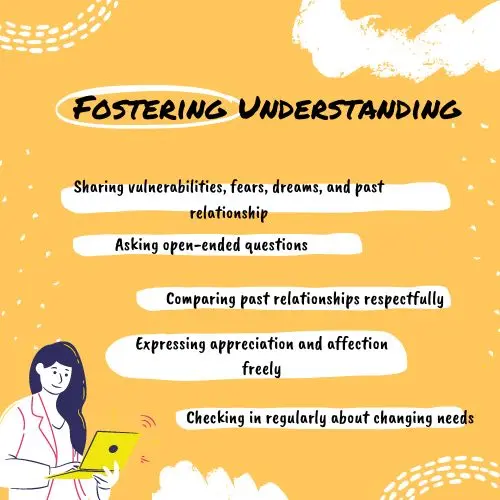Introduction: Cultivating Trust Through Vulnerability and Understanding
Building trust is central to a healthy relationship, yet establishing this takes a lot of courage, patience, and commitment. The need is just discussed, as is the author’s process of establishing trust in a relationship. Also, the author applies research-based strategies, mentioning that even distrust could turn into greater intimacy through honesty, empathy, and time. Every relationship can keep its potential for greater fulfillment if care is taken.
Facts on Relationship Trust and Attachment Styles
- 69% of relationship conflicts stem from a lack of trust between partners.
- Trust develops gradually based on consistency between a partner’s words and actions.
- Securely attached couples prioritize honesty, loyalty, and direct communication to build transparent understanding.
- 55% of relationships lacking trust dissolve within 3 years versus 15% when high trust exists.
- Partners rate feeling loved, respected, and trusting each other as top predictors of marital happiness.
The Foundation of Connection

Trust lies at the core of fulfillment within relationships, yet it requires courageous vulnerability. Trust signifies a reliable belief that a partner genuinely cares for one’s well-being and the relationship through consistent demonstrations of loyalty, honesty, and reliability.
When trust exists:
- Partners feel safe being indeed seen through openness without judgment
- Conflicts resolve constructively as a united team rather than adversaries
- Each believes in the other’s fidelity, even during moments of doubt
- Independence coexists with intimacy through acceptance of individual needs.
- Challenges strengthen bonds rather than threaten the foundation
Cultivating this secure base allows couples to support each other authentically through life’s ebbs and flows. Trustworthy behavior builds trust over time through patience.
Establishing Reliable Patterns
Critical relationship researchers John Gottman and Dr. Sue Johnson emphasize the following consistently strengthens trust foundations:
- Honoring commitments by making the relationship a priority through quality time
- Communicating kindly and avoiding criticism or contempt when resolving disagreements
- Showing affection, appreciation, and active interest in each other’s world daily
- Balancing the need for togetherness respectfully with independence and privacy
- Demonstrating honesty, loyalty, and reliability through words matching actions
- Problem-solving as united allies rather than adversaries through compromise
- Expressing remorse for mistakes committed to not repeating unhealthy patterns
With effort, trust grows as partners see each other reliably meeting needs through dedication even during challenges – a comfort enabling greater vulnerability.
Fostering Understanding

Opening up requires courage yet cultivates intimacy, which is essential for trust. Suggestions include:
- Sharing vulnerabilities, fears, dreams, and past relationship wounds with undivided listening
- Asking open-ended questions to understand each other on deeper levels continuously
- Comparing past relationships respectfully to gain perspective, not judging partners
- Expressing appreciation and affection freely through words of affirmation daily
- Checking in regularly about changing needs and addressing relationship gaps proactively
- Attending counseling together periodically for tools nourishing bonds long-term
Understanding each other’s worlds reinforces security, allowing relationships to thrive in calm and stormy waters. Trust arises from consistent reliability through life’s seasons.
Repairing Fractured Trust

When mistakes damage trust’s foundation, commitment to reassurance, empathy, and changed behavior rebuilds it. Steps involve:
- Taking accountability for actions through humility rather than defensiveness
- Explaining honestly from the perspective of building understanding, not blame
- Listening actively and validating painful perceptions respected partners feel
- Making reasonable amends through specific efforts not to repeat unhealthy patterns
- Requesting and respecting patience as trust regains strength gradually over consistency
- Attending counseling for guidance in restoring intimacy while processing trauma
- Focusing on present actions demonstrating care rather than ruminating on past pains
With care, even the deepest wounds heal through empathy, honesty, and time. Our highest purpose lies in nurturing all beings, including ourselves and our relationships, with unconditional compassion.
In Summary
Fulfilling relationships thrive on the basis of trustworthiness, loyalty, and care, consistently shown through understanding and compromise. Any form of relationship that wishes to deepen its connection must look inwards and practice daily displays of empathy, patience, and kindness because the benefits of care are bound to show up, time after time, by building each other up with patience, honesty, and trust. Relationships need lifelong nurturing; however, every relationship has beautiful intimacy in store for any couple willing to nurture it with care, respect, and dedication to growth.

